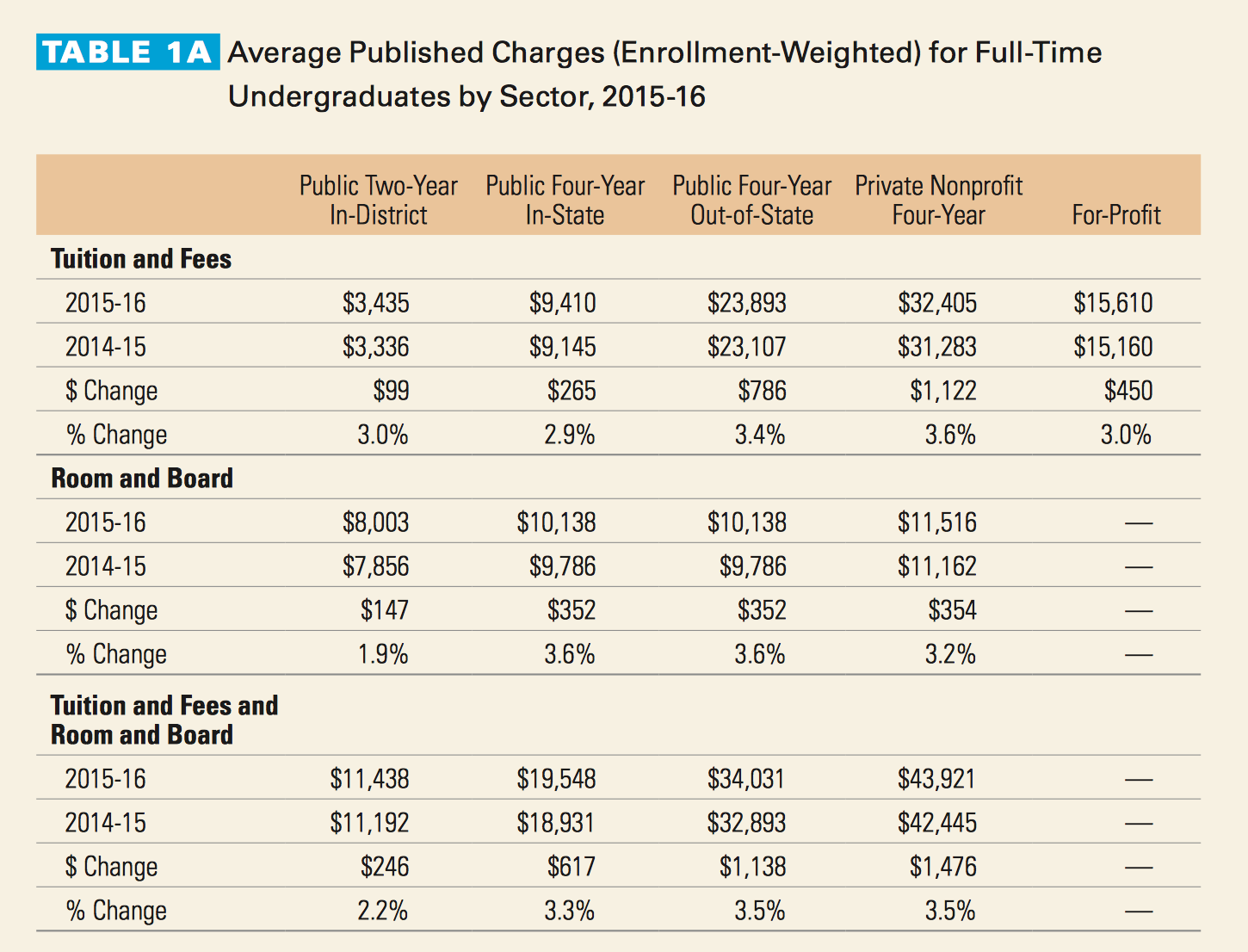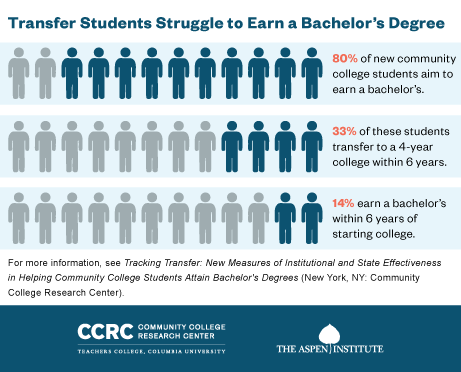Regardless of the major you choose, most colleges and universities require you to complete several core classes before graduating. General Education, or Gen. Ed., courses are designed to create well-rounded students with a broad knowledge base and a wide range of transferable skills.
Studying subjects like English Literature, Mathematics, History, Science, Art History, Sociology, and World Religions can help students develop their analytical, critical thinking, and communication skills. These courses also give you the opportunity to cultivate an appreciation of alternative viewpoints and perspectives. In other words, Gen. Ed. courses can prepare you to be a successful student, worker, and citizen.
What’s the Catch?
Gen. Ed. requirements account for about a third of your overall credits. Therefore, about a third of your tuition goes towards courses that have nothing to do with your major. That may not matter if you’re attending a state university with reasonable tuition rates. However, if you’re looking to go to an elite, private college, you may be spending more money than you want to on your core classes.
Not surprisingly, many students are flocking to community colleges to complete their General Education requirements before moving on to traditional liberal arts colleges or universities. But is that the best move? What are the benefits and potential drawbacks of completing Gen. Eds. at a community college?
The Pros
The Cost
College tuition is on the rise. According to a recent report published by College Board (pictured below), tuition for a private, nonprofit 4-year university rose 3.6% from the 2014-2015 school year to the 2015-2016 school year. The current cost of a single 3-credit course at a 4-year university (public or private) can range anywhere from $1,200 to $6,700. Compare that to the modest price tag of the in-state tuition at a community college: about $135 – $750 per 3-credit course.

Table Data Source: The College Board, Annual Survey of Colleges Image Source: College Board, Trends in College Pricing 2015
The numbers don’t lie: taking a few Gen. Ed. courses at a local 2-year university can save you a lot of cash!
The Convenience
Taking courses at a community college is a great option if you’re looking for convenience and flexibility. Community colleges cater to non-traditional students, and offer plenty of nighttime courses. They also have a wide variety of course delivery options. Most schools offer ground, online, and hybrid classes in traditional or accelerated formats. If you have kids of your own or are trying to hold down a job while pursuing your education, community college may be your best bet.
The Attention
Without a doubt, one of the biggest benefits of taking Ged. Ed. courses at a community college is the personalized attention you’ll receive from the faculty members. Most introductory courses at larger universities are packed. Some of these courses are capped at 100 or more, and if you’re lucky, you may have some communication with your TA. And you may never see your professor outside of class! Classes at community colleges are typically smaller, which makes it easier (and more fun!) to interact with your professor and your classmates. Smaller class sizes allow for extra support and additional small group discussion.
The Faculty
Teaching Gen. Ed. courses may sound relatively easy, but it takes a special skill set. Not everyone can do it! You really have to know your stuff, and have a high level of empathy and understanding. You have to be able to teach the content and teach the intangible skills that students need to be successful in future courses.
Faculty members at community colleges have to be skilled at teaching the 101’s of Gen. Ed. courses. Think about it. Every student from an Engineering major to someone pursuing a Theatre degree will likely need to take the same set of Gen. Ed. classes. There’s going to be varying learning styles with students pursuing vastly different paths all in one classroom. As a result, professors teaching Gen. Ed. courses need to know how to work with those diverse populations to meet their needs, and hone students’ wide range of skills and abilities. Students can have a very rich learning experience working with one of these faculty members!
The Diversity
Community colleges are known for their diversity. Yes, Gen. Ed. courses virtually anywhere will be somewhat diverse for the reasons just mentioned, but only within the context of that institution. However, community colleges provide low tuition rates, convenient course schedules, and have open admission policies, making it possible for students from all walks of life to get an education. General Education programs seek to strengthen students’ understanding of social and cultural diversity. What better way to do that than to take a Gen. Ed. course in a diverse environment?
The Cons
There are plenty of benefits to taking your general education requirements at a community college. However, there are also some disadvantages worth noting.
The Lack of Rigor
Due to a community college’s open-admissions policies, they don’t typically offer the kind of rigorous curriculum that you’ll see at an elite, private, nonprofit university. The Community College Research Center (CCRC) and The Aspen Institute released a guide, The Transfer Playbook: Essential Practices for Two- and Four-Year Colleges.
This guide focuses on ways to improve bachelor degree outcomes for students who start at community colleges. The infographic below is a snapshot of the guide’s data from a CCRC press release, and it shows that out of the 80% of students entering a community college with the intent of earning a bachelor’s degree, only 14% actually do so within six years of beginning college.
Image Source: Aspen Institute and the Community College Research Center (CCRC)

Students who start their careers at a community college may have difficulty transitioning from a less challenging academic environment to a more demanding one.
Lack of Resources
The tuition at community colleges may be low, but sometimes, it comes at a price. Because community colleges don’t have access to the funds that larger private and public universities often do, they lack resources. The libraries are often smaller, and there are less academic support services available to students.
Transfer Drama
Every university has a different transfer policy. You may not have the ability to take some courses off campus. Some schools will allow you to transfer in all your Gen. Ed. credits, other schools will insist you take a certain number of credits on campus, and then there are those that require you to take all your Gen. Ed. courses on campus. Bottom line: Make sure you review your school’s credit transfer policies before enrolling in community college. You don’t want to end up taking the same course twice!
Lack of Community
Community colleges, ironically enough, often lack a strong sense of student community. Because community colleges are populated by non-traditional commuter students, most of whom have many family and professional obligations, there isn’t a large demand for student organizations and activities. Some campuses have more offerings than others. However, if you’re looking for a very rich and vibrant campus experience, you may want to take all your courses at a more traditional school.
Bottom Line
Completing your General Education requirements at a community college can be a smart move. Not only will you save money, but you’ll also get to be in a supportive and diverse learning environment! Just do your homework to make sure you can transfer your credits without a song and dance!
——————————————
Author Byline
 Andrea Hart has an MFA in Creative Writing from Boston University, and an MA in Theatre from Villanova University. She enjoys teaching, and is currently teaching English Composition for the online divisions of Southern New Hampshire University and Post University. Andrea is also the blogger for Top 5 Online Colleges, where she gives students advice about how to succeed in an online learning environment.
Andrea Hart has an MFA in Creative Writing from Boston University, and an MA in Theatre from Villanova University. She enjoys teaching, and is currently teaching English Composition for the online divisions of Southern New Hampshire University and Post University. Andrea is also the blogger for Top 5 Online Colleges, where she gives students advice about how to succeed in an online learning environment.
We welcome your feedback to our work.
Email: General Information | Prof. David C. Pecoraro
Thank you!
Daniel & David
University or Community College: Where to Take Those Gen. Ed. Classes

0 Comments